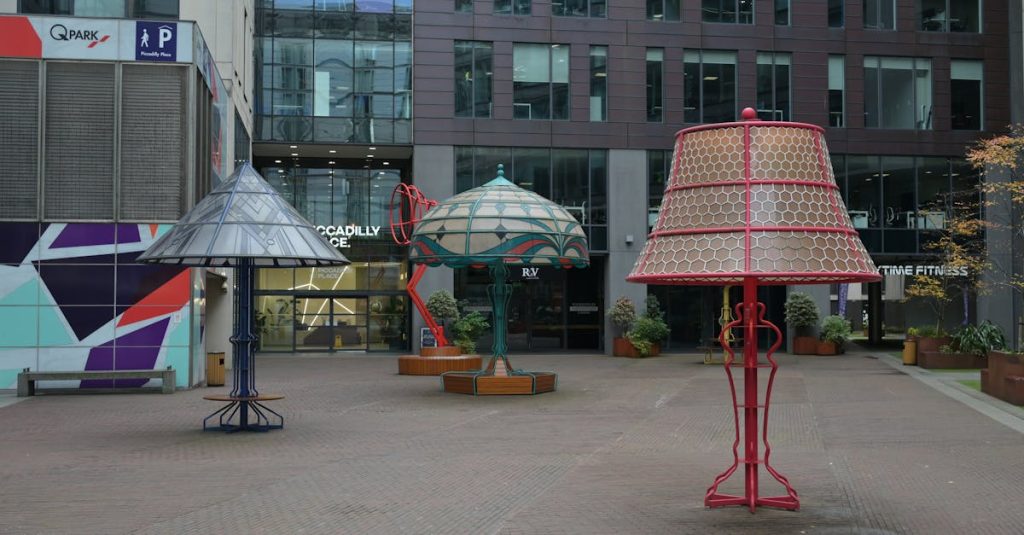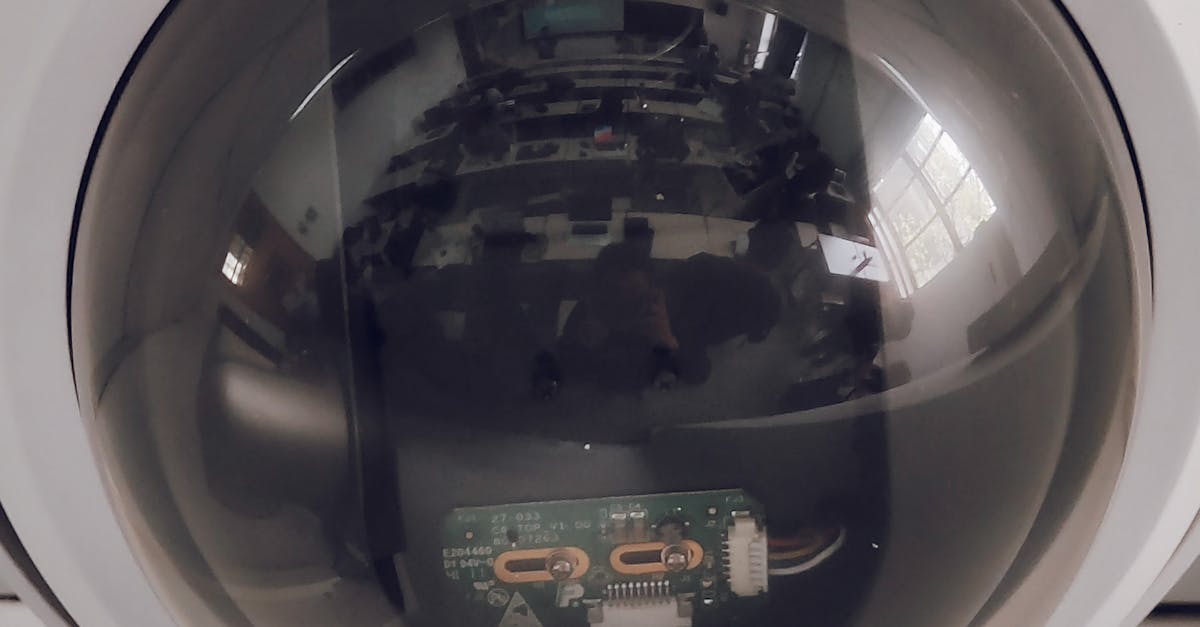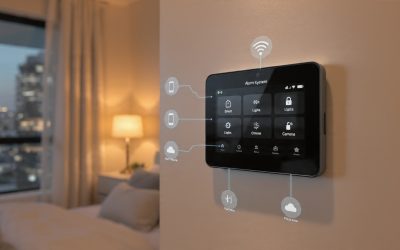Enhance Security with Commercial CCTV Installation
In today’s fast-paced business environment, ensuring the safety and security of your commercial premises is paramount. One of the most effective ways to achieve this is through the installation of Closed-Circuit Television (CCTV) systems. The benefits of commercial CCTV installation extend far beyond mere surveillance; they encompass a comprehensive approach to security that can significantly enhance the overall safety of your business.
By providing real-time monitoring and recording capabilities, CCTV systems act as a deterrent to potential criminal activities, such as theft, vandalism, and unauthorized access. The mere presence of cameras can discourage would-be offenders, creating a safer environment for both employees and customers. Moreover, CCTV systems offer invaluable evidence in the event of an incident.
Recorded footage can be crucial for investigations, helping law enforcement agencies identify suspects and gather information about criminal activities. This not only aids in resolving disputes but also provides peace of mind to business owners, knowing that they have a reliable record of events. Additionally, many insurance companies offer reduced premiums for businesses equipped with CCTV systems, recognizing the lower risk associated with enhanced security measures.
Thus, investing in commercial CCTV installation not only protects your assets but can also lead to financial savings in the long run. Secure your smart home with the latest technology by visiting SECURE YOUR Smart Home.
Key Takeaways
- Commercial CCTV enhances security, deters crime, and provides valuable evidence.
- Key factors before installation include location, coverage needs, and budget.
- Selecting the right system depends on resolution, storage, and remote access features.
- Proper layout planning ensures optimal camera placement and coverage.
- Compliance with legal and privacy laws is essential to avoid penalties.
Factors to Consider Before Installing Commercial CCTV
Before embarking on the installation of a commercial CCTV system, several critical factors must be taken into account to ensure that the system meets your specific security needs. First and foremost, it is essential to conduct a thorough risk assessment of your premises. This involves identifying potential vulnerabilities, such as entry points, high-traffic areas, and locations where valuable assets are stored.
Understanding these risks will help you determine the number and placement of cameras required for optimal coverage. Another important consideration is the type of CCTV technology that best suits your business. There are various options available, including analog and digital systems, each with its own advantages and disadvantages.
Digital systems, for instance, often provide higher resolution images and advanced features such as remote access and cloud storage. Additionally, consider the lighting conditions in your premises; low-light environments may require cameras equipped with infrared capabilities to ensure clear footage at all times. By carefully evaluating these factors, you can make informed decisions that will enhance the effectiveness of your CCTV system.
Choosing the Right CCTV System for Your Business

Selecting the right CCTV system for your business is a crucial step in ensuring effective surveillance and security. With numerous options available on the market, it is essential to understand the key features that will best serve your needs. One of the primary considerations is the resolution of the cameras.
Higher resolution cameras provide clearer images, which can be vital for identifying individuals or details in recorded footage. For most commercial applications, high-definition (HD) cameras are recommended as they offer a good balance between image quality and storage requirements. Additionally, consider the type of camera that will be most effective for your specific environment.
For instance, dome cameras are often used in indoor settings due to their discreet design, while bullet cameras are more suitable for outdoor use due to their durability and ability to cover longer distances. Furthermore, assess whether you require fixed or PTZ (pan-tilt-zoom) cameras; PTZ cameras offer greater flexibility by allowing operators to adjust the camera’s position remotely. Ultimately, choosing the right CCTV system involves a careful evaluation of your business’s unique security needs and the available technology.
Planning and Designing the Layout for CCTV Installation
Once you have selected the appropriate CCTV system for your business, the next step is to plan and design the layout for installation. A well-thought-out layout is essential for maximizing coverage and ensuring that all critical areas are monitored effectively. Begin by creating a detailed floor plan of your premises, marking key locations such as entrances, exits, cash registers, and storage areas.
This visual representation will help you identify strategic camera placements that minimize blind spots and enhance overall surveillance. When designing the layout, consider factors such as camera angles and field of view. Ideally, cameras should be positioned to capture clear images without obstructions from walls or furniture.
Additionally, think about the height at which cameras will be mounted; higher placements can provide broader coverage but may sacrifice detail in facial recognition. It is also important to account for potential environmental factors such as lighting conditions and weather exposure for outdoor cameras. By meticulously planning your CCTV layout, you can create a robust security system that effectively monitors your business premises.
Ensuring Compliance with Legal and Privacy Regulations
As you implement a commercial CCTV system, it is crucial to ensure compliance with legal and privacy regulations governing surveillance practices. Different jurisdictions have varying laws regarding video surveillance, particularly concerning employee monitoring and public spaces. Familiarize yourself with these regulations to avoid potential legal issues that could arise from improper use of CCTV systems.
For instance, in many regions, it is required to inform employees about the presence of surveillance cameras in the workplace. Additionally, consider privacy concerns when installing cameras in sensitive areas such as restrooms or break rooms. It is essential to strike a balance between security needs and respecting individuals’ privacy rights.
Implementing clear policies regarding camera usage and data retention can help mitigate privacy concerns while ensuring that your business remains compliant with applicable laws. By prioritizing legal compliance and ethical considerations, you can foster a culture of trust within your organization while maintaining effective security measures.
Integrating CCTV with Other Security Systems

To enhance the effectiveness of your commercial security strategy, consider integrating your CCTV system with other security measures such as access control systems and alarm systems. This integration allows for a more comprehensive approach to security management, enabling you to monitor and control various aspects of your premises from a centralized platform. For example, linking your CCTV system with access control can provide real-time video feeds when an access point is triggered, allowing security personnel to respond promptly to potential threats.
Moreover, integrating alarm systems with CCTV can enhance incident response capabilities. In the event of an alarm activation, relevant camera feeds can be automatically displayed on security monitors, providing immediate visual context for security personnel. This synergy between different security systems not only improves response times but also streamlines operations by reducing the need for multiple monitoring platforms.
By adopting an integrated approach to security management, businesses can create a more robust defense against potential threats.
Training and Educating Employees on CCTV Usage
Implementing a commercial CCTV system is only part of an effective security strategy; training and educating employees on its usage is equally important. Employees should be made aware of the purpose of the CCTV system and how it contributes to their safety and the protection of company assets. Providing training sessions can help demystify surveillance practices and foster a culture of security awareness within the organization.
Additionally, employees should be educated on how to access recorded footage when necessary and understand protocols for reporting suspicious activities or incidents captured by the cameras. Encouraging open communication about security concerns can empower employees to take an active role in maintaining a safe work environment. By investing in employee training and education regarding CCTV usage, businesses can enhance their overall security posture while promoting a sense of shared responsibility among staff members.
Maintaining and Upgrading Your Commercial CCTV System
The effectiveness of a commercial CCTV system relies not only on its initial installation but also on ongoing maintenance and periodic upgrades. Regular maintenance checks are essential to ensure that all components are functioning correctly and that camera lenses are clean for optimal image quality. Establishing a routine maintenance schedule can help identify potential issues before they escalate into significant problems.
Furthermore, as technology continues to evolve rapidly, it is important to stay informed about advancements in CCTV systems that could enhance your security capabilities. Upgrading components such as cameras or storage solutions can improve performance and expand functionality over time. Additionally, consider incorporating software updates that may introduce new features or enhance existing ones.
By prioritizing maintenance and upgrades for your commercial CCTV system, you can ensure that it remains an effective tool in safeguarding your business against evolving security threats. In conclusion, investing in a commercial CCTV system offers numerous benefits that extend beyond mere surveillance; it enhances overall security while providing peace of mind for business owners and employees alike. By carefully considering factors such as risk assessment, technology selection, layout design, legal compliance, integration with other systems, employee training, and ongoing maintenance, businesses can create a robust security framework that effectively addresses their unique needs.
As threats continue to evolve in today’s dynamic landscape, staying proactive in implementing comprehensive security measures will be essential for safeguarding assets and ensuring a safe working environment.
When considering the installation of commercial CCTV systems, it’s essential to also think about how these systems can enhance overall security, including monitoring pets while you’re away. For insights on how home security installations can help keep an eye on your pets, you can read more in this related article: Home Security Installation: Keeping an Eye on Pets While You’re Away from Home. This resource provides valuable information that can be beneficial for both residential and commercial security planning.










